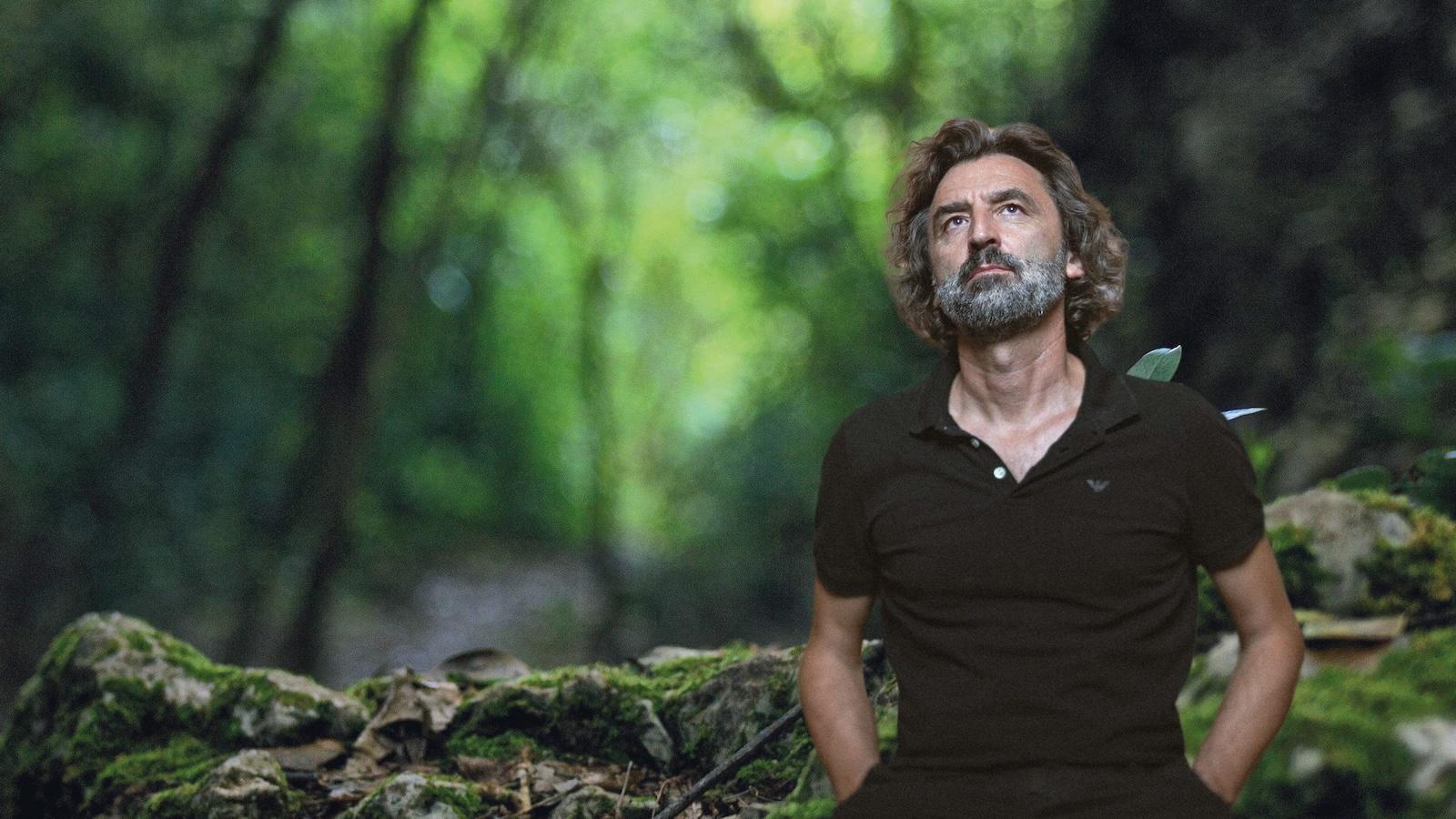Marcel Cranc advocates a music "that cannot be heard with the ears."
The Mallorcan composer presents his new album, 'Es', on July 4th at the Teatro Principal in Inca, as part of the Sonsdenit series.


PalmThe best definition for the concert that musician Marcel Cranc (the stage name of Mallorcan Miquel Vicensastre) will give next Friday, July 4th, is neither his own nor a recent statement. It's the phrase an uncle told him when, years ago, he found him engrossed in front of the television—which at the time only broadcast in black and white, as the composer well recalls. He was still a child and couldn't take his eyes off the famous Pink Floyd concert in Pompeii, which took place in 1972. "This music isn't meant to be heard with your ears," his uncle told him. And he must have been right because, forty years later, Marcel Cranc says that if he closes his eyes, he can still hear it.
"I was little, and that kind of music that you can't hear with your ears really stuck in my mind. I think that's exactly what I'm looking for these days, that kind of music and experience that can blow your mind in a way that you can only understand if you've experienced it," explains the musician. He will make this clear at the presentation of his new album, Es, in a concert that will take place at the Teatro Principal in Inca as part of the Sonsdenit series, organized by Fonart.
The UIB Women's Choir
He will be accompanied on stage by around thirty people. On one side, the members of a musical ensemble consisting of clarinets, saxophones, French horn, trombone, and double bass, and on the other, the UIB Women's Choir, directed by Lidia Fernández Redondo. "I've long dreamed of doing something with a heart," explains Marcel Cranc, "and the opportunity arose to do it with them, who are an extraordinary group. I've been imagining it for many years, having all these voices for a live performance, and I have to admit that in the end everything has come together," he explains. "The instruments cannot be obtained." "The voice connects with something that goes beyond everything," he asserts.
The repertoire will include some songs from the musician's nearly twenty-year career, but, above all, it will serve to present his latest work, this album entitled Es, with which Marcel Cranc has attempted to leave behind the sounds most closely linked to pop to delve into new sounds related, among others, to electronic music. "After the release of the album 1989, six years ago, I began a process that has finally led me to make an album that I define as a commission I made to myself. It sounds strange, but I have delved into things that I had wanted to do for a long time and hadn't always done. That's why I needed to also put aside everything that I didn't want to do right now, and that meant allowing myself to change in every sense. In the end, I have tried to escape from pop aesthetics and other clichés and I am truly satisfied."
In this sense, Miquel Vicensastre is very clear that the career of any artist is in constant transformation. "You can't judge or value anyone based on a single period, not painters, writers, or musicians," he argues. "I think it's about searching and investigating what you want to do, that it doesn't always have to be exactly the same. One of my references is Talk Talk, a group that started with synth pop and then moved on to spectacular, hypnotic music where they forgot about the machines. The change perhaps led to their commercial failure. In reality, if when you start you already believe you've achieved success, if from the beginning you think you already know where you're going, it may end up backfiring.
Love for the land
Among the tracks on this new album, released last May, is the song "Isla," where Marcel Cranc sings that "in my sea it is dying / its language melts inside a wounded abyss." "I feel very bad about the overcrowding we have and I see that with people of my generation it's a topic that comes up all the time, that we don't talk about anything else. Knowing that you won't be able to offer your children a home and having the feeling that what they're doing is pushing us out of our homes is very bad management. Other peaks. I've never been one for waving flags, but I think this time we'll have no choice but to all go into battle," he says, visibly worried.
The lyrics of this latest album are also an important part of the transformation he's undergone as a musician. "I've gotten older and I don't find it in myself to talk about love as much anymore," he confesses with a laugh, "because maybe right now I'm more moved by other types of love, like love for the land," Marcel Cranc concludes. The pseudonym, by the way, comes from combining the male name that pays homage to two "purely Mediterranean and Mallorcan elements: the sea and the sky" with Miquel Vicensastre's horoscope sign. "I needed a way to distinguish my facets, because I also dedicated myself to composing modern music, and this occurred to me; there's no mystery to it," he says.
However, it hasn't been just his professional career that has undergone changes in recent years. So has his way of experiencing live music, which has also had an impact on his performances. "There's a type of audience that's been growing, which is the one that goes to the big festivals, and then another, which is the one that goes to concerts and shows more like Sonsdenit. And maybe there's a group of people who agree on both, but I think it's much smaller. In any case, as a musician, they're two very different things. It's not the same to have nothing. A beer to the other and who's there to party, or to have a group of people who have come just to listen to you. Or as his uncle said: how they listen to him without having to need their ears.
